Ten seconds or you forfeit your court!
This cringe-worthy quote was from a self-appointed (let’s say) "Captain of the Courts" at a new local spot in my hometown. Word got out that these four new, dedicated pickleball courts just opened a few short months ago. On this day, the courts were just full, though my crew and I were standing by, ready to play.
Thankfully, it wasn’t my first journey into unfamiliar "open pickleball seas." Ol’ Captain may have been a little too eager to threaten us to the gallows.
I was undeterred, gave him a chuckle and a smile, then led my crew to our court.
The crew I brought on this occasion, however, were three brand-new players to the sport. None of whom had any significant racquet sport backgrounds.
What was once early excitement for them became instant panic. They felt the entire world was watching their every move – ready to give them the boot. And now they had to execute their first serves? SHEESH!
Questions on etiquette quickly bubbled up: Can these people kick us off the courts? Should we just come back another day? What if I hit the ball into another court? What do we do when ____? What happens if _____? What do you mean paddle tap?
Pickleball, ammahright?
We worked through it. I encouraged them, and they did fine. They had a blast (go figure).
Once this crew knew the ins-and-outs of etiquette and nomenclature, they really set sail (ok last bad pirate pun). They’ve been practically living at the courts for the past few weeks. They’ve even brought new friends and family into the fold.
So wherever you are on your pickleball journey, there are some important rules to consider. Some are fair, others may cause a mutiny.
After playing pickleball in several states (and countries), I present to you ...
Johnny5pointOH’s definitive Dos and D-OHn’ts of Pickleball etiquette (recreation/open-play)
Courtside Manner
DOs
- Relax - You’ll get your turn. Expect longer lines in good climate/peak hours.
- Observe the local waiting system (Paddle Bins, Names on a Board, etc.) - This is for when courts are full. If you’re unsure about the protocol, simply ask a local (until you find a helpful one).
- Keep close watch on when your turn is up - Oftentimes courts free up faster than you’d think. Be ready to join.
- If unfamiliar with pickleball
- Watch a video or two on how-to-play before heading out (beware, some videos better than others)
- It’s "ok" to keep your group together - Sometimes it is the only time you’ll get to hang out with your people, don’t feel obligated to split up if you don’t get to play together often.
- It’s also "ok" for your group to split up a bit - Offer to split up on opposing sides or mingle with others, especially if it balances out the skill levels more evenly.
- A good/even game of pickle is way better than a lopsided win that has little historical meaning.
- When players are waiting, be prepared to play one side-out game to 11 (win by 2) - Just the way it is. Plenty of videos on how this works.
- On windy days, or if lighting isn’t the best, offer to "change sides" after the first team reaches six points ... otherwise this is basically unnecessary to do
- Be prepared with at least one good ball should there not be any at the courts
- Give ample space surrounding courts, especially when it’s crowded
- When you learn the systems for waiting/rotation, help things out
- (HOT BUTTON TOPIC) Be OPEN to other people’s music
- It may just be the vibe at the courts, try to join in
- If it’s not your style:
- ask around to mix it up
- maybe find a different open play
- Are you really paying that much attention to the music in the heat of battle??
- On busy days it’s encouraged to get to know someone new while you wait
Pickleball Tournaments: What to Expect and How to Prepare
Competing in pickleball tournaments is a great experience. Being prepared for what to expect can go a long way toward success.
 The Dink PickleballJason Flamm
The Dink PickleballJason Flamm
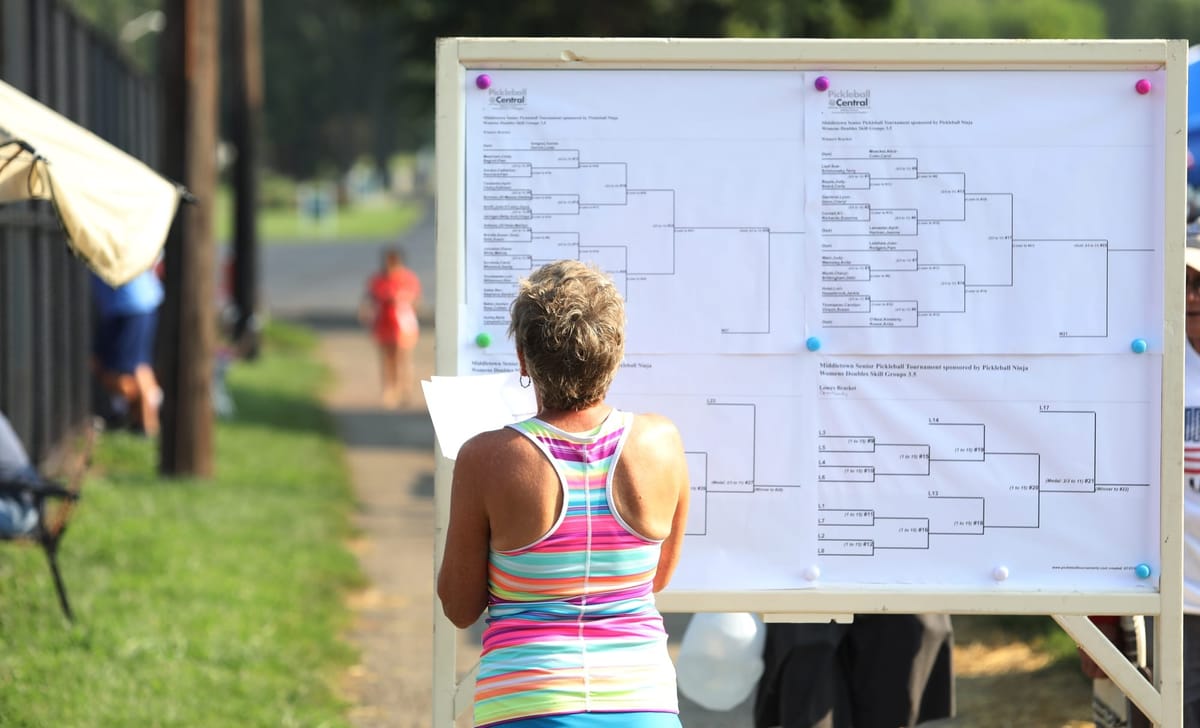
D-OHn’ts
- Don’t assume there isn’t a waiting system - If the courts are bumping, you should ask how to get in line.
- Don't move people's paddles from a witing bin unless you know the process well - I’ve seen some shenanigans with this. Ask for help if you don’t know the process well.
- If you are a beginner or lower-level player, don’t assume all courts are beginner or lower-level courts - Ask a local if the courts you’re about to wait for are for beginner or "lower-level" play.
- If you are athletic enough or skilled enough to play on advanced courts, don’t "sandbag" by only playing lower-level courts for cheap wins. C’mon.
- Don’t hold your place in line and then disappear - It messes up the flow. Go to the car/friends/bathroom after the next game, or hold off on joining the line.
- Don’t leave gates open - SMH
- Don’t be afraid to play Mixed Doubles
- These are some of the most-fun matches.
- Both women and men can EQUALLY ball-out on the courts.
- Heckle Tennis players sharing courts with temp pickleball lines - DOH! Admittedly, this is not easy for me (I kid) ... though there may be a chance to ask them to join you (convert) at some point?
In-Game
DOs
- Relax - It’s a game. There will be a winner and a loser. You’ll have good shots and bad shots. Everyone on the court is in a similar boat ... improvement may take several weeks before you notice it!
- Greet your group, especially unfamiliar players - Exchanging names and a paddle tap/high five for good measure. Eases any unnecessary tension.
- Be flexible with your partner/opponents
- If you’re still learning and are looking to improve, let your group know - You can still get a good game in, though this may prevent unnecessary hiccups in play (and they may teach you a thing or two in the process)
- Communicate over middle balls
- This is to help each other to not smash paddles/smash each other.
- If both you and your partner are rightys (or the rare instance both leftys) you typically default middle balls to the 'forehand' that’s in the middle. Higher success likelihood if similarly skilled.
- Find a healthy balance to compliment good shots for both partners and opponents - Don’t overdo it, but make it a point once in a while
- Offer an apology when you body bag someone
- They may say "don’t apologize." That’s good - those are the best people to play with.
- Try as best as you can to keep those drives/smashes low so you don’t hurt someone and/or make them angry.
- Paddle-tap the rest of the players at the end of the game - Show respect, like a glove-tap in boxing/MMA. You just went to battle. (Just don’t hulk-smash it!).
- Be flexible on the side of the court you end up with
- Be flexible on starting position with your partner - assuming that you both will switch regularly (common in traditional, side-out scoring).
- If you’re a lefty (there’s less of you out there), let your partner know before starting. You may both go after a forehand in the middle aggressively, so be aware.
Pickleball Continues Its Significant Growth Among Americans in 2023
According to Sportico, pickleball participation grew over 52 percent from 2022 to 2023.
 The Dink PickleballJason Flamm
The Dink PickleballJason Flamm
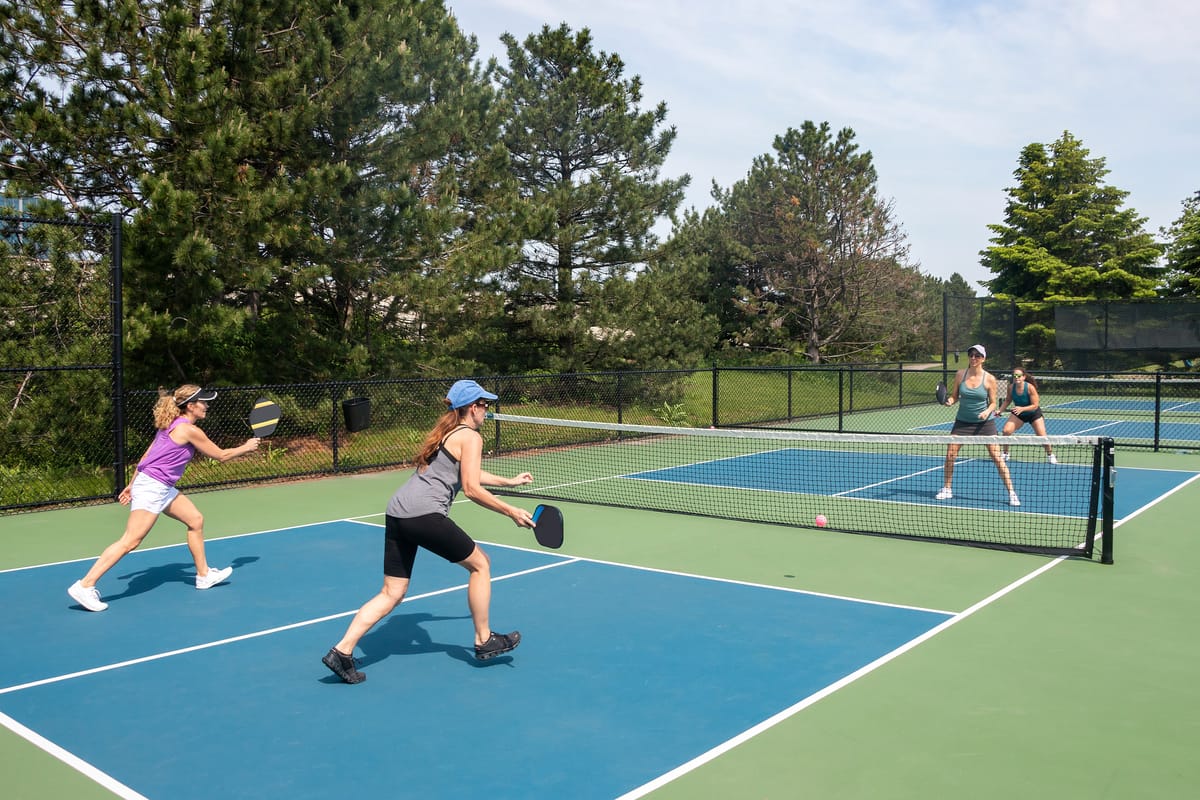
D-OHn’ts
- Don't play ONLY to win
- A lot like golf, you’re going out there in recreational open-play more for self-improvement/ good games. The W at the end of the day is less important.
- Side note: Don’t Get Pickled!
- Don't get pickled - I WILL DIE ON THIS HILL.
- If you’re outgunned or just stinking up the joint, fight as much as possible for that one point. Dig deep and communicate with your partner so that you both can fight for some dignity!
- Keep it positive though. You can always restore honor in the next game.
- (Controversial but…) Don't feel the need to master side-out scoring before you hit the courts.
- If you go solo to the courts, you can learn scoring MUCH more easily in a game setting with some patient players around you.
- Make it known to the players joining at the same time that you are still learning the scoring, and ask if they can help you. (Almost always YES, or they’ll point you to other courts/players).
- You should however learn a few basic shots, especially how to land a serve IN before you go (doesn’t need to be 100 percent, but just a little dedicated practice here goes a long way).
- There are coaches and instructional videos everywhere these days, but good (patient) friends can show the way in off-peak hours too.
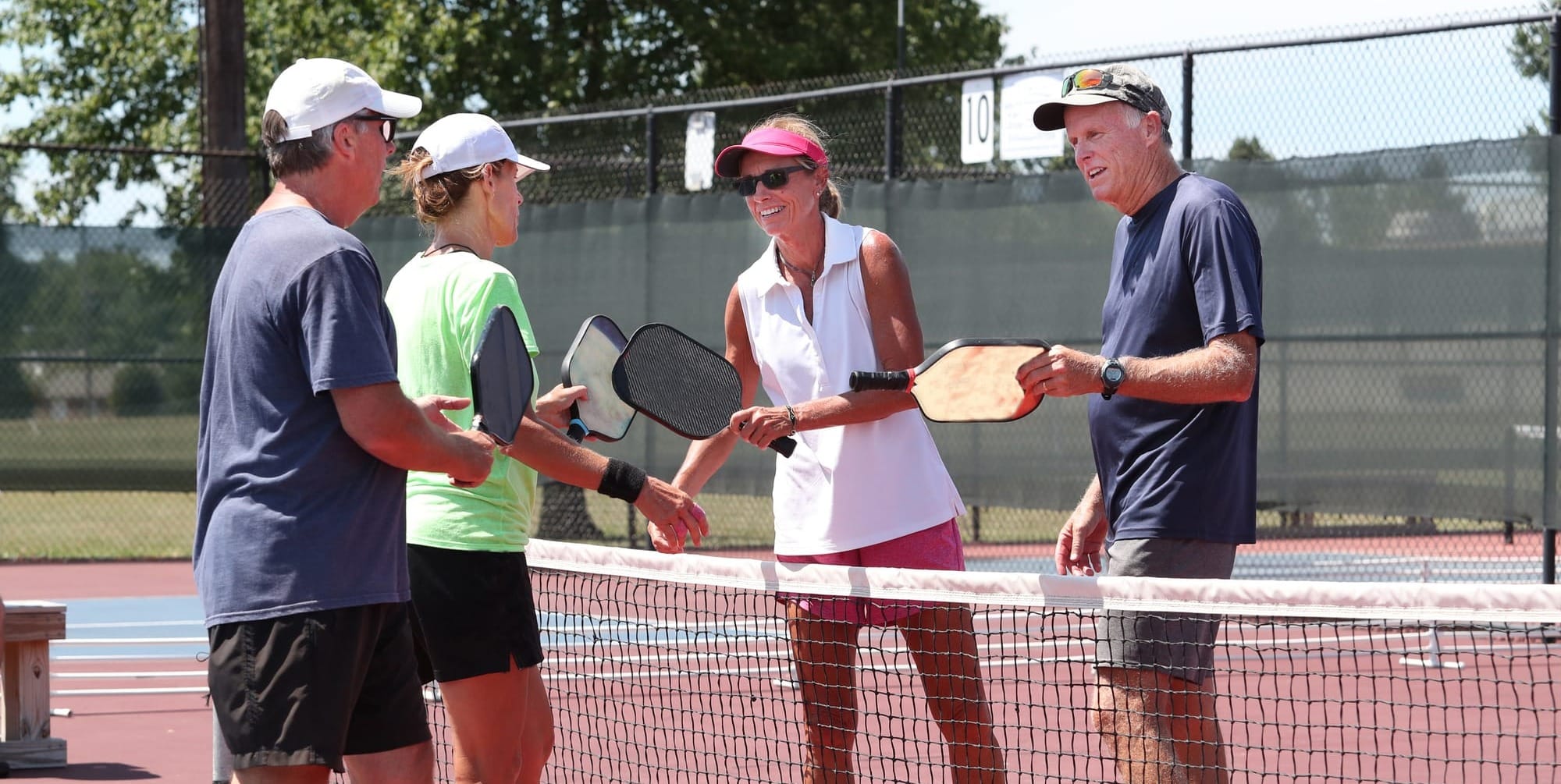 Remember, it's just a game. The main goal is to have fun and get some exercise.
Remember, it's just a game. The main goal is to have fun and get some exercise.- Don’t be scared about hitting a ball into another court - Yes be ready to call “BALL” IMMEDIATELY to prevent an injury if in play. However, if the ball is not flying/rolling within the confines of the live-play/the court itself (example - rolled-up against the back fence then allow the other court to play their point out - ask for ball help after. They will determine if it hindered.
- Don’t be afraid to call BALL If another ball rolls into your court/view and affects your play/poses a risk. I’ve been nervous about opposing ankles. Just call it.
- Don’t take people's balls by mistake - have you seen the prices lately?!
- Don't call tight line-calls - If an opponent hits a good shot to you that’s in doubt? It ain’t out.
- Line is IN (except on serves that HAVE to clear the kitchen line).
- Don’t make wishy-washy line calls
- Make a decision, live by it. If unsure, ask your partner. If the partner's unsure, graciously ask the opponents (understanding that this should be a last resort - call defaults to the team that received the shot).
- Be warned that paying attention to where the ball lands and making honest/fair in or out line-calls is a big part of learning the game.
- Make a decision, live by it. If unsure, ask your partner. If the partner's unsure, graciously ask the opponents (understanding that this should be a last resort - call defaults to the team that received the shot).
- Don’t assume the opponent hears/sees your line call
- Make it CLEAR AND APPARENT
- Point UP and/or call OUT clearly for out calls
- IN Call is NOT always required, though if it’s close, call it.
- You may see some use the IN hand signal - they hold out their paddle hand and their free hand (open, facing down), at waist-height, as if to “leave it alone.” Customarily means IN if it looks close.
- Don’t assume everyone knows higher-level strategy - If your partner doesn’t understand ‘stacking’ and ‘shake-and-bake’, now is probably not the time to teach it.
- Just because you CAN, doesn’t mean you should
- Take every ball - Give your partner a fair chance to get in the game with balls that are clearly playable by them
- Drive/smash hard at an opponent
- Similar skill levels and/or ability to block? Sure. If you are much stronger/skilled than them though? Unnecessary.
- You can probably beat a less-skilled opponent with 3-4 other well placed/skilled shots that won’t hurt them.
- Taking liberties/targeting an opponent with less mobility
- If Betty or Frank who are "seasoned" with apparent knee/back/ankle deficiencies etc., can’t get to your drop-shot, then give them something with some respect that they might be able to hit back. Don’t patronize them, but find a good balance to make it respectable.
- Unsolicited Advice
- If you are a higher-level/veteran player wanting to offer a newer/beginner player some advice, you HAVE to ask permission first - and ideally only after discovering that they are newer.
- Players likely will ask for advice if they want it.
- Do not (I repeat) DO NOT apologize on a let cord - This isn’t tennis. You likely meant to win the point. What are you worried about? If let cords offend you, why?
Important to note
Keep in mind, this is my take. You may do what this what you will. Culture and etiquette may look a little different for your locale than the places I’ve played.
There’s a chance you may be taking your etiquette too seriously. I’ve been there. Pickleball is (and has been) more "Jimmy Buffett" (RIP) than "Yacht Club Conservative."
That said, to paraphrase a quote from actor Geoffrey Rush "The Pirate’s Code (or in this case, ETIQUETTE) is more of what we call guidelines than actual rules" -Captain Barbossa, Pirates of the Carribean (2003)
Did I miss one? Want to sell me on a Do or D-OHn’t that I got wrong?
Find me on X or Instagram or e-mail me at [email protected]
Anuncie Aqui / Advertise Here
Sua marca para o mundo Pickleball! / Your brand for the Pickleball world!

 English
English  Spanish
Spanish  Portuguese
Portuguese  German
German  Italian
Italian  Japanese
Japanese  French
French  Polish
Polish  Russian
Russian  Netherlands
Netherlands  Hungarian
Hungarian  Turkish
Turkish  Videos
Videos 


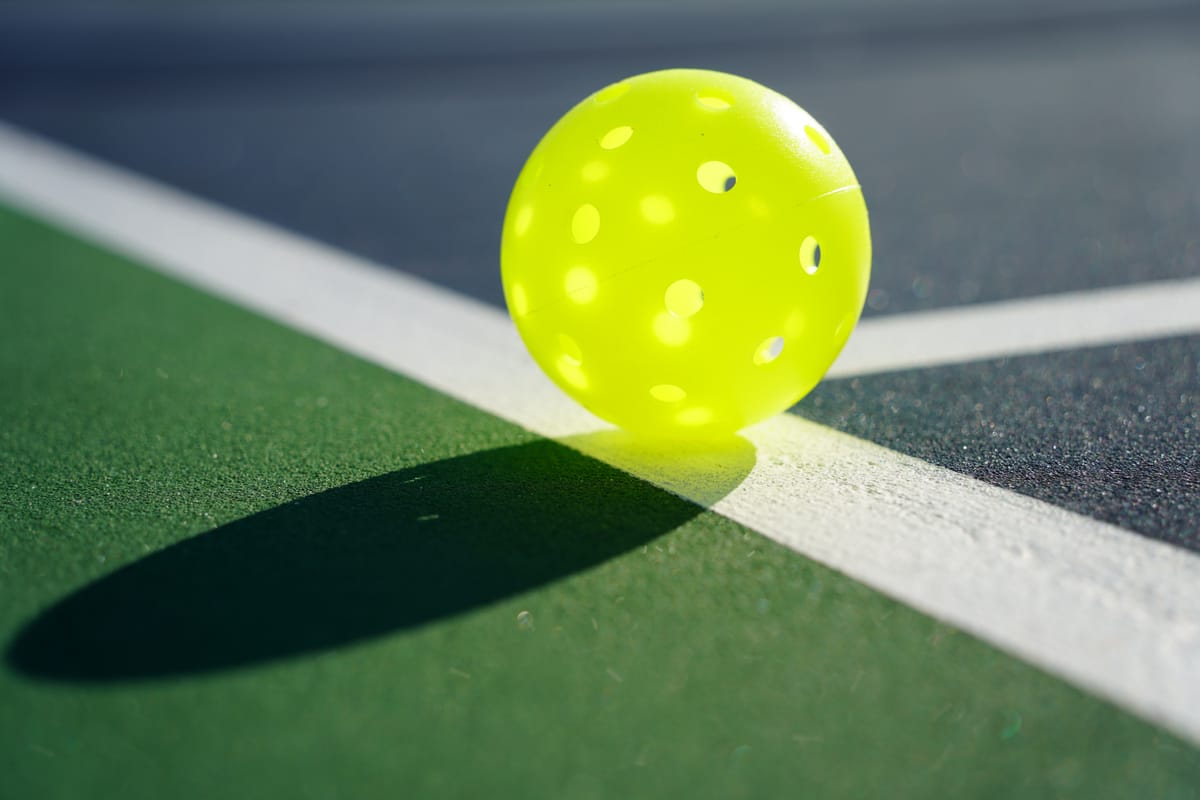
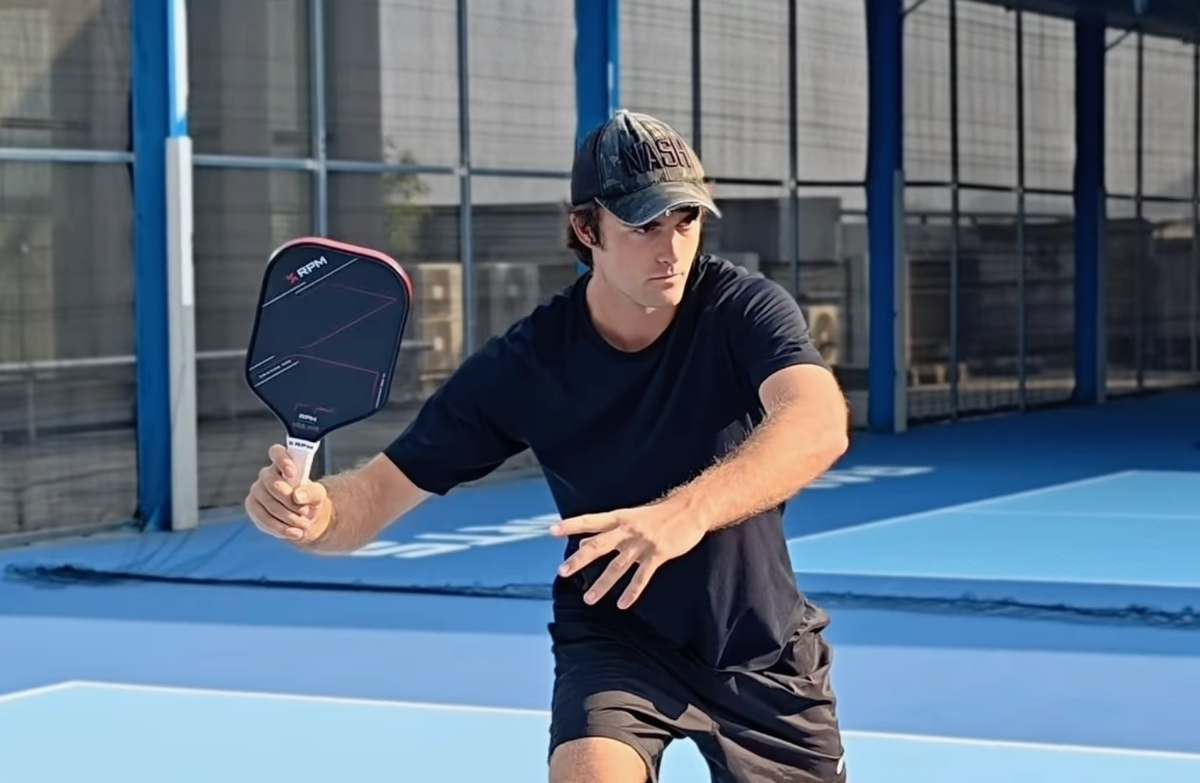




 English (US) ·
English (US) ·  Portuguese (BR) ·
Portuguese (BR) ·